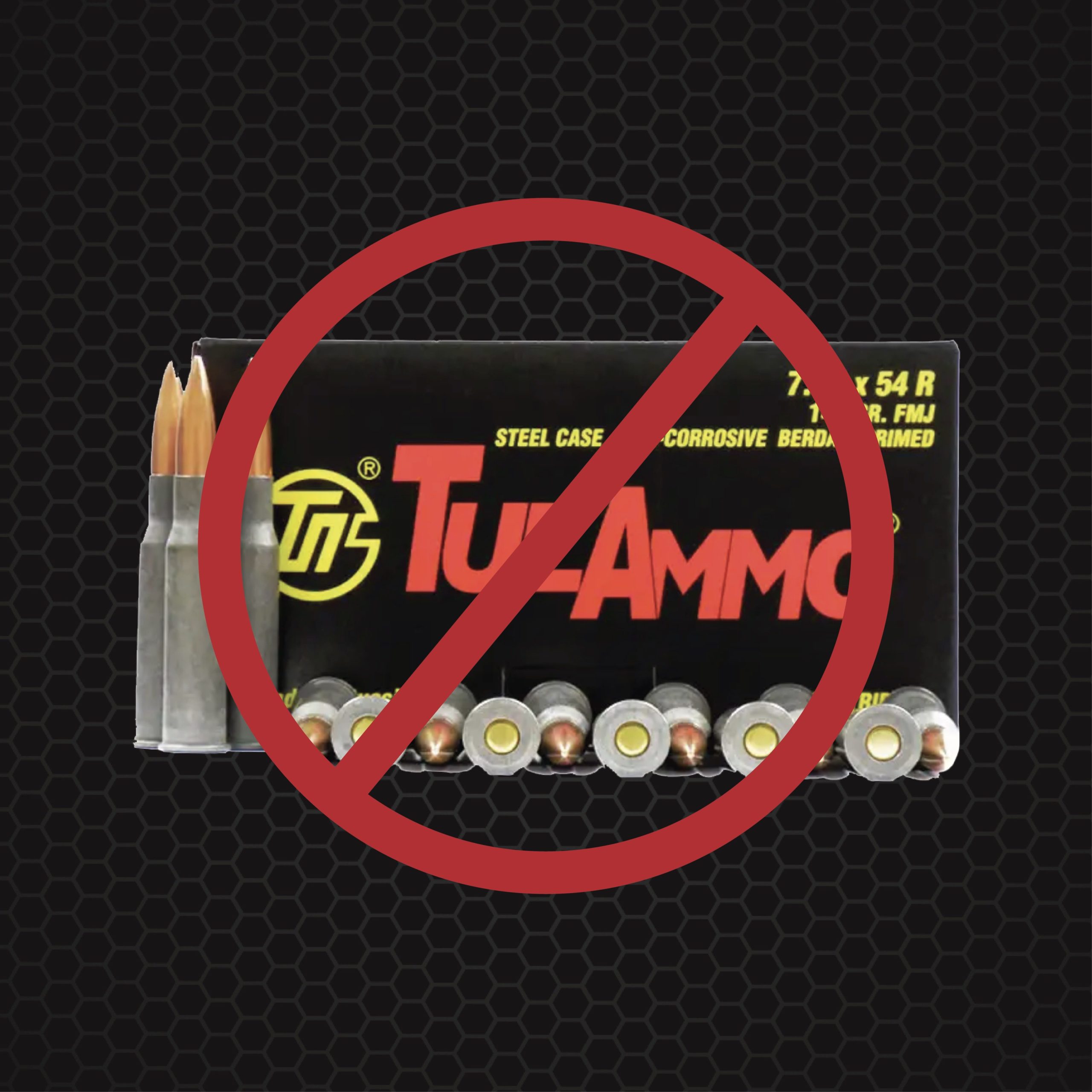You’ve heard about the upcoming Russian ammo ban imposed by the Biden administration, but let’s take a closer look at the facts and impact on American shooters.

The justification for the ban comes from the State Department’s Fact Sheet:
Description of Sanctions: Pursuant to the Chemical and Biological Weapons Control and Warfare Elimination Act of 1991 (the CBW Act), the United States will impose a second round of sanctions on the Russian Federation over its use of a “Novichok” nerve agent in the August 2020 poisoning of Russian opposition figure Aleksey Navalny.
New sanctions imposed today under the CBW Act include:
- Restrictions on the permanent imports of certain Russian firearms. New and pending permit applications for the permanent importation of firearms and ammunition manufactured or located in Russia will be subject to a policy of denial.
- Additional Department of Commerce export restrictions on nuclear and missile-related goods and technology pursuant to the Export Control Reform Act of 2018.
These sanctions also include a continuation of measures imposed on March 2, 2021, as well as in 2018 and 2019 in response to the poisoning of Sergey Skripal and his daughter, along with the waivers associated with these sanctions. For information about the waivers, please see 86 FR 14804 and 84 FR 44671.
The key point is adding ammunition to the list of restricted imports, as bans on Russian-manufactured firearms have been in effect since 2014 when the Obama administration enacted sanctions against Russian over the country’s actions in the Crimea, later expanded by the Trump administration in 2017 over actions in the Ukraine.
Is the ammo ban permanent?
The minimum term of the restrictions is one year from date of enactment on September 7, 2021. The administration imposed several conditions the Russian government must meet before the ban will be rescinded:
Duration and Conditions for Removal
These latest sanctions on Russia pursuant to the CBW Act will take effect upon the publication of a Federal Register notice expected on September 7, 2021, and they will remain in place for a minimum of 12 months. The sanctions can only be lifted after a 12-month period if the Executive Branch determines and certifies to Congress that Russia has met several conditions described in the CBW Act, 22 U.S.C. 5605(c), including (1) providing reliable assurances that it will not use chemical weapons in violation of international law, (2) it is not making preparations to use chemical weapons in the future, (3) it is willing to allow international inspectors to verify those assurances, and (4) it is making restitution to Mr. Navalny.
The odds of those conditions being met by the Russians are about zero, so realistically the ban will be effect for at least the remainder of the Biden administration. The Russians can find other places to sell their ammunition, so the ban ultimately hurts law-abiding American shooters more than Putin and his cronies.
What does the ban mean for patriots, shooters and firearms owners?
The Russian ammo ban puts even more pressure on the supply chain for ammunition in the United States. Owners of CommBloc firearms like AK-47s, AK-74s, SKSs, etc., are concerned about continued availability of ammo for their rifles, but the ban also impacts a considerable source of ammunition in other popular calibers, including 9mm and 5.56mm. It’s estimated that Russian manufacturers account for as much as 40 percent of the approximately 800,000,000 rounds consumed in the United States annually. The bottom line is that prices and availability of popular rounds are not headed in the right direction. That’s a slap in the face just as it appeared some of the pressure on the ammunition market was beginning to ease.
But there is hope. The biggest importers of Russian ammunition sensed this was coming a few months ago and placed orders in advance. There is also a two-year window for current approved import permits, so in addition to large stockpiles of Russian ammo already in the United States, the supply lines won’t be completely cut off even after September 7. This creates some breathing room for manufacturers in the United States and non-sanctioned countries to scale up production to fill some of the giant gap left by the Russians.
Patriot Defense Ammunition can weather the Russian ammo ban thanks to our long-term supply relationships with companies like Winchester and Prvi Partizan, which is based in Serbia, and unaffected by the sanctions. Shooters looking for a source of high-quality 7.62×39 ammo should consider PPU’s brass-cased M67 ammo, in stock and shipping today, among our many other available calibers.



